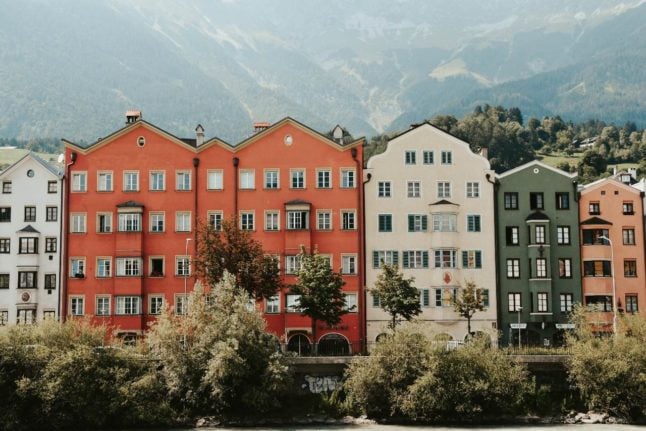Despite Brexit becoming a reality at the start of this year, there is still a strong community of British people living in Europe – including Austria.
So, what draws people to live in this small alpine country in Central Europe? And which part of Austria have they chosen to make home?
The capital takes the top spot
According to figures from Statistik Austria, Vienna is the most popular location with 4,447 British people living in the city.
As the capital of Austria with a multicultural population and a growing English-speaking community, it’s no surprise that so many British people live there.
READ MORE: How do foreigners feel about living in Austria?
Simon Kelly, a corporate English trainer from London, has been living in Vienna for 24 years after moving to the city for love and to experience living in another European city.
He said: “There are many utilitarian ‘best things’ about Vienna, like the subsidised housing, the public transport, the health and education system, the relative safety compared to other major cities in Europe and the fact that everything seems to work.”
In comparison to his UK life, Simon also said that Vienna is a more affordable place to live – something that has earned Vienna the title of best place to live for many years.
He said: “Vienna has always seemed more affordable than say London, in every respect, and accessing a doctor or dentist here is still easy.
“One good example might be from a friend who visited last year and observed that nobody really looks poor.
“It’s a massive generalisation of course but perhaps that best sums it up – nothing really looks that shabby.”
Where else do British people live?
After Vienna, Tyrol is the second most popular location for British people in Austria with 1,682 British residents, many of whom are drawn to the mountains and the outdoor lifestyle.
Salzburgerland is another popular province (1,172 British people) for similar reasons, and is the new home of British freelance writer and English teacher Mairi Bunce.
Mairi relocated with her family from Vienna to Bad Ischgl in the Salzkammergut earlier this year where she is enjoying the fresh air, having more space and living in a similar landscape to her native Scotland.
She said: “My favourite thing is watching the weather change on the mountains.
“I’m not built to cope with the weeks of 35-degree weather and cloudless skies of summer in Vienna.

“I love waking up in a cloud and watching the sky lift as the morning goes on. It’s much more like Scotland and it makes me feel completely at home.”
Elsewhere in Austria, Lower Austria has 1,295 British residents, Styria has 977 and Upper Austria has 827.
The provinces least populated by Brits are Carinthia with 642 British residents, Vorarlberg with 342 and Burgenland with just 145.
Why do British people live in Austria?
Austria might be a land-locked country but it has modern cities, a rich history and easy access to nature – something that many people from the UK are drawn to.
Mairi, from Scotland, said: “Most of the Brits I know in Austria came here for love or moved for a short time for work and then never got around to leaving – I’m one of the latter.
“I think people come here for lots of different reasons – it’s a small country, so there’s usually an interesting story about what drew someone to the place.
“But most people seem to stay for the lifestyle, benefits, and the way it’s so easy to move between the beautiful scenery and the very liveable cities.”
FOR MEMBERS: Nine mistakes everyone makes when they first move to Austria
Mairi said the affordable cost of living is another reason why she has made Austria her home.
She said: “I couldn’t afford the lifestyle I have here in the UK, largely because the cost of childcare and transport here is so affordable.
“I live in a big Altbau apartment with wooden floors, a balcony and chandeliers. It’s incredible, and I love that I don’t have the pressure to ‘get on the housing ladder’ like I would in the UK because renting in Austria is so secure.”
For Simon in Vienna, Austria represents a safe and stable place with a distinct European flair.
He said: “It may not have the intensity and passion of some other European countries but it somehow manages to combine the best elements of a more Mediterranean mindset with the efficiency and functionality of some of our more northern European neighbours.”
How does Austria compare to other countries in Europe?
According to data from the United Nations, there are 1.3 million British people living in the European Union.
Spain is the most popular country with 302,000 people, followed by Ireland at 293,000 and France at 177,000.
In Germany, there are 99,000 British people that call Deutschland home, and in Italy there are 66,000 Brits.
IN NUMBERS: How many people become Austrian each year – and where do they come from?



 Please whitelist us to continue reading.
Please whitelist us to continue reading.
Member comments